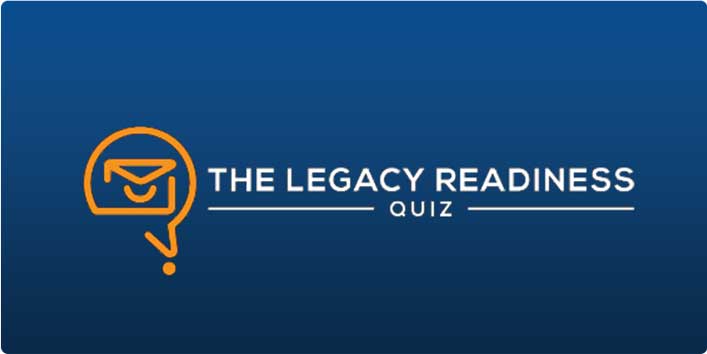- Home
- Problems with being an executor
- When an Executor Is a Beneficiary
When an Executor is a Beneficiary:
Here's What to Do!
When an executor is a beneficiary navigating the intricacies of the probate process as an executor can be challenging.
For Jim, the situation escalated into an emotional terrain, particularly when pressured by fellow beneficiaries.
First, let's understand who an executor is. An executor is a person — often a close family member named by the decedent in their will — responsible for ensuring that the estate's affairs are settled correctly and according to the decedent's wishes. This role includes paying off debts, settling taxes, and distributing assets to beneficiaries.
In this case Jim's mother named him to be executor over his two siblings.
If the decedent's estate is uncomplicated, the executor's commensurate duties will be straightforward. However, problems may arise if the executor is also a beneficiary, and other beneficiaries become uncooperative.
The task becomes not only about carrying out the legal and financial obligations but also about managing personal relationships and potential conflicts.
In the exercise of his duties, it's essential for Jim to remember that an executor's fiduciary duty is owed to the estate and all its beneficiaries, not just to himself.
Even when met with pressure and uncooperative behavior from his siblings, he must continue to manage the estate impartially, responsibly, and in the best interests of all involved.
The right to information about the estate is one that all beneficiaries, including the executor, should have access to. However, as the executor, Jim has to balance his rights as a beneficiary with the need to avoid alienating his siblings by appearing secretive or biased.
Sharing information about the estate's progress transparently could help quell burgeoning sibling fights, promoting cooperation amongst the beneficiaries.
An executor is entitled to reasonable expenses incurred while carrying out their duties. While it may seem counterintuitive given his desire to avoid family conflict, Jim should remember not to absorb these costs personally.
Besides being a necessary legal right, this might actually work in his favor, demonstrating to his siblings that he is fulfilling his duties according to the law.
As the executor, Jim has to ensure that all debts and taxes are paid before distributing the assets, objectively presenting another point of contention amongst heirs eager for their inheritance.
It's important to remember that rushing this process can lead to further legal trouble for the executor.
This leads us to an important point—communication. Effective, transparent and regular communication with other beneficiaries can help manage expectations and prevent misunderstandings.
A Zoom call or email every few weeks should keep the beneficiaries happy and involved.

When an Executor is a Beneficiary: Avoid These Problems
Managing this dual role also requires that Jim equip himself legally. He should seek out expert legal and financial advice to guide his actions.
Mismanagement of the estate might not only result in a civil lawsuit against him but also tarnish personal bonds irrevocably, leading to sibling fights.
It's crucial for Jim as the executor and beneficiary to understand the importance of being patient. Dealing with an estate is a time-consuming process and often includes navigating bureaucratic red tape.
His siblings need to understand that quick disbursements are not always feasible, given tax obligations and outstanding debts that need settling.
A will’s execution is a legal process, which includes rules for deadlines and timelines. Jim and his siblings must understand that missing these can lead to various challenges, including potential court battles. So adhering to deadlines is imperative.
Perseverance, too, plays a vital role for executors in beneficiary disputes. Despite the pressure from his siblings, Jim must continue to fulfill his duties faithfully. While it is human to want to avoid conflict, standing firm in these situations is necessary for meeting legal responsibilities.
Having assumed dual roles, it would be advisable for Jim to maintain a detailed record of all dealings related to the estate. Such meticulous organization not only enables smooth operations but also serves as a defense in case questions about his management of the estate arise.
It is also crucial to remember that while the executor has the authority to make decisions, these should be made consensually whenever possible in order to maintain harmony. Avoid making unilateral decisions, especially contentious ones that will lead to arguments and fights.
If discord continues to escalate, a family or estate mediation might be a valuable option. Mediation, a process where an impartial third party assists in resolving disputes, can be an invaluable tool to prevent sibling fights and potentials court battles.
If an executor-beneficiary encounters an uncooperative or malicious heir, taking them to a probate court is an option. While this should be a last resort, given the strain it can put on family relations, it sometimes becomes necessary to preserve the estate's integrity.
Remember when an executor is a beneficiary there is intense responsibility. It's understandable to have bad days due to grief. Delegating some responsibilities or working with an estate attorney, accountant and financial advisor will take a lot off the executor's shoulders.
To protect his own interests, the executor might consider an Inventory and Appraisement of the estate's property. This legally recognizes a written document detailing all the assets in the decedent's estate.
Lastly, to avoid allegations of fraud and to promote transparency, the executor-beneficiary should not co-mingle personal and estate funds. Keeping these separate can help check any unwarranted allegations that might arise.
In conclusion, "When an executor is a beneficiary," it's a delicate balancing act that requires careful navigation between legal obligations and personal relationships. Executors like Jim must prioritize transparency, patience, impartiality, solid legal advice, and effective communication to avoid potential conflicts.
The aftermath of losing a loved one is already complicated and heartbreaking, and when one is tasked with the legal responsibility of settling the deceased's state, it becomes even more challenging.
Nonetheless, as an executor and beneficiary, proper organization, understanding your rights and responsibilities, striving to avoid court battles or sibling fights can guide you through this emotionally charged situation.
With empathy for each other's roles and open communication about the process, it's entirely possible to avoid potential family rifts and settle the estate smoothly.
- Home
- Problems with being an executor
- When an Executor Is a Beneficiary






